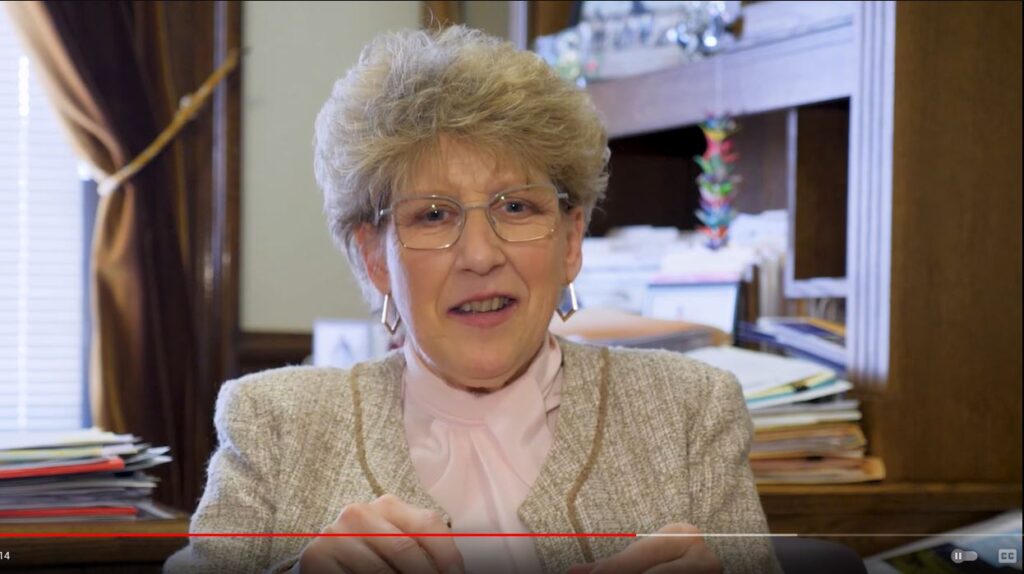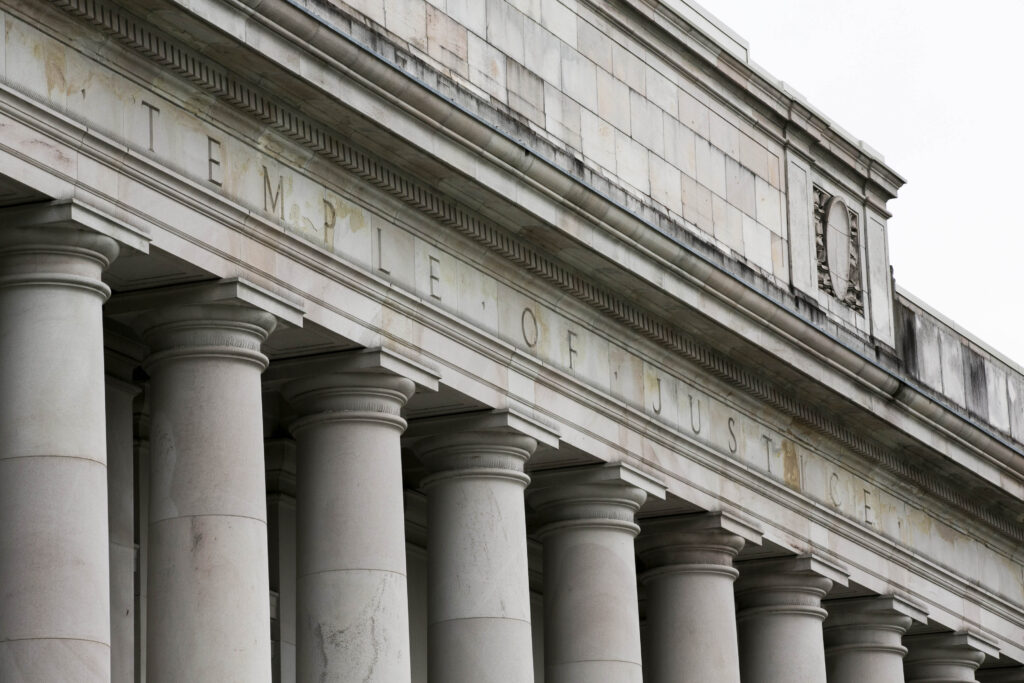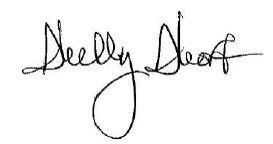Here’s how our state got stuck with a new income tax
The following e-newsletter was sent to Sen. Shelly Short’s subscribers March 28, 2023. To subscribe to Sen. Short’s e-newsletters, click here.
VIDEO: Washington’s new income tax may not hit you right away. Currently it applies only to capital gains income — but yes, we have an income tax now, and it will only grow in the future. Responsibility for this tax lies with Democratic majorities in the Legislature and the Washington Supreme Court. To them, it didn’t matter that the people of Washington voted against an income tax 11 straight times.
 To see video, click here.
To see video, click here.
Dear friends and neighbors,
Last week, the Washington State Supreme Court issued a ruling that should gall every one of us. The court ruled an income tax is permissible in Washington state. It upheld a new tax on capital gains income that our Democratic colleagues passed two years ago. This was the first step toward overturning 90 years of precedent that have kept our state income tax-free. In this e-newsletter, I want to explain how this happened. Unless something changes, Washington is now saddled with an income tax, and we can only expect it to grow.
What makes this so disturbing is that the people of Washington have voted against an income tax 11 straight times. Advocates of higher taxes and spending weren’t willing to take no for an answer. This time they gave up on attempting to convince the people this is a good idea and decided to ignore them. Instead they passed a bill in the Legislature and blocked a public vote. The state Supreme Court did the rest.
The next move will be to expand this tax to the middle class — people like you and me.
This country is supposed to be about the power of the people, not power over the people. This case is a perfect illustration of a discouraging trend we are seeing in Olympia. The views of the people are disregarded by elected officials who think they know better. Or by unelected officials in our state bureaucracy. Or by Supreme Court justices, most of whom are political appointees, and who think they should be able to usurp the role of the Legislature and make political decisions.
I urge you to watch the video above. In it, I talk about this straightjacket of government control that is making it harder to live and work in Washington state, even in wide-open rural districts like ours. I want you to know I stand with you. Olympia’s attitude problem needs to end.
New state income tax doesn’t apply to most of us – but just wait
At least for now, this new state income tax applies to capital gains on stock and bond income, at a high enough level that it is supposed to hurt only tech millionaires and wealthy investors. They’re starting small — $500 million a year. But it won’t stay this way for long. We’ve seen emails in which prominent Democratic legislators explain that the purpose of this new income tax was to set up a test case for the Washington State Supreme Court. This would allow them to obtain a ruling that permits a broader income tax in the state of Washington. Such a ruling would then allow a Democratic majority to vote to expand the base of the tax, to encompass the middle class. That’s where the real money is.
The wealthy will pay this new state income tax for the first time next month. If the plan is successful, the rest of us will be joining them shortly.
It’s not about ‘fairness’ – it’s about ‘moreness’
Our colleagues are fond of saying an income tax will somehow make our tax system “more fair.” For years they have been citing a study produced by a Washington, D.C. think tank that claims our state’s taxation system is the “most regressive” in the country. This study is produced by the Institute for Taxation and Economic Policy, which is in the business of promoting income taxes. This study makes serious mistakes about the way Washington’s tax system is configured. Everyone knows it, but income tax fans in this state cite the study anyway, because it’s the only thing they have.
When the data is corrected for these mistakes, our state turns out to be within a percentage point of national norms, at all but the highest income level. We don’t sock the poor with taxes. We don’t charge sales tax on food. There are a few taxes that hit those of lower incomes disproportionately, but these are matters of personal choice – taxes on alcohol and marijuana, for example. Most of us would agree this is proper.
The key thing is that no one is talking about eliminating or significantly reducing other taxes we have on the books. This is about increasing the tax burden on the entire state, so that state government can spend more money. State government spending has already doubled in the last decade, mostly because our not-at-all broken tax structure is already raising plenty of money. We may not need any more, but government’s appetite can never be satisfied.
A bizarre ruling from the state Supreme Court
In 1933, our state Supreme Court declared that a “progressive income tax” – a tax that forces some people to pay higher rates than others – would require a constitutional amendment (meaning that a vote of the Legislature and the people is needed). This is because our state constitution has a tight definition of personal property, and income is considered property. Our constitution says property taxes must be “uniform” — the state can’t discriminate and make some people pay less and other people pay more.
This is why this battle has raged for 90 years, and the public has always had a say in the matter. Every few years, the income-tax enthusiasts go to the voters and ask for a constitutional amendment, and the people say no. Or the tax advocates go to the Supreme Court and ask for a new ruling so they might cut the people out of the decision, and then the court tells them no.
But this time was different. In its 7-2 ruling, the state Supreme Court went along with an artifice invented by our Democratic colleagues in the 2021 income tax bill. The Legislature declared the income tax to be an “excise tax,” not a property tax. The court said, fine.
This decision was troubling for many reasons. One of them is that the court had already decided this issue, back in 1937, when the Legislature tried exactly the same thing. In those days the Supreme Court was more interested in legal precedent, the intent of the law, and and the actual wording of our constitution. The court said what mattered is how the tax functioned, not what the Legislature wanted to call it.
To declare this income tax is an excise tax, the court ignored the common understanding of tax law everywhere else in the country. Forty-one other states tax capital gains income, and say these are income taxes. The Internal Revenue Service says a tax on capital gains income is an income tax. This new state tax is even based on federal income tax returns. It appears the court came to its conclusion first, and then looked for an explanation to justify it.
Especially chilling is that the ruling contains fashionable political sloganeering. At one point, for instance, the ruling claims Washington’s current tax structure “perpetuates systemic racism,” as if this is a term with any legal meaning. It even quotes the flawed ITEP study. Argumentation of this type demonstrates this ruling isn’t about the law, but rather about politics — and the power of political institutions over the people. “I try to be respectful of court rulings,” said Jared Walczak of the Tax Foundation, “but I don’t see any way to get around it on this one: The court wanted a capital gains tax so it ruled in favor, even though the argument was ludicrous.”
A few legal gyrations still will be necessary before this income tax can be extended to all of us — perhaps a ruling that income isn’t property. Our state constitution may contain strong wording on this point, but after a ruling like this one, no one should feel safe.
Advisory vote demonstrates public opposition remains high
Let’s go back to the fact that you weren’t able to vote this down, as has happened so many times before. This was by design. The bill’s sponsors, back in 2021, included an “emergency clause” that prevented anyone from filing a referendum and forcing a public vote.
Actually, you did have a chance to cast a ballot, on Nov. 2, 2021. The problem is that the vote didn’t count. Under a unique Washington initiative passed in 2007, any tax passed by the Legislature without a public vote must appear on the ballot for a non-binding “advisory vote.” However, the Legislature is free to ignore anything you have to say.
This vote, the 11th on the subject, showed us that the people’s attitudes have not changed.
Sixty-one percent of Washington voters voted against an income tax.
Our colleagues are dealing with that issue this year, by attempting to pass a bill that bans advisory votes.
Sen. Shelly Short, 7th Legislative District
Contact me!
Telephone: (360) 786-7612
Email: Shelly.Short@leg.wa.gov
Mailing address: P.O. Box 40407/ Olympia, WA/ 98504
Website address: https://shellyshort.src.wastateleg.org/
Legislative Hotline: 1 (800) 562-6000










